Code
HCS21785
Weight
800 gm / 1.76 lbs
Size
Height
20cm (8") Material
Conch shell
Availability
Available
Date Added
2020-10-27 06:26:48
Note : We used to sell this product 5 years ago so it may no longer be in our stock.
It is possible that we still have it with our suppliers but the price could be different from before.
Feel free to order. We will verify availability and inform you promptly.
It is possible that we still have it with our suppliers but the price could be different from before.
Feel free to order. We will verify availability and inform you promptly.

Safe Payment
We accept Paypal, Money Transfer, Bank Transfer
Confidence
Protection covers your purchase and personal data.
Worldwide Delivery
We ship Worldwide, except Russia.Shipping cost US$25.2 for upto 0.5 kgs

Hotline
Talk to help line for your question on 9841267335Vajrasattva : Brief Introduction
Vajrasattva is also regarded as Adi-Buddha by Nepalese Bajracharya's who follow Vajrayana tradition according to the text Vajrasattva Kaya. His body is white with one face and two hands. His right-hand holds a five-pronged golden vajra at his heart. His left-hand holds a silver bell at his side. He sits in the Vajraparyanka posture wearing precious silks and ornaments with jewel diadem. His body is adorned with the major and minor marks of a Sambhogakaya and emits a clear limitless light. It appears to lack all notion of substantiality, like the reflection of the moon in the water.
Vajrasattva has a father-mother aspect too. Generally, this form is not exhibited in open. It is shown only to those who are initiated in the Highest Yoga Tantra. His form is the same as in the single one but his consort carries a Kartika in her right hand and a kapala in her left hand. Read More . . .
Vajrasattva is also regarded as Adi-Buddha by Nepalese Bajracharya's who follow Vajrayana tradition according to the text Vajrasattva Kaya. His body is white with one face and two hands. His right-hand holds a five-pronged golden vajra at his heart. His left-hand holds a silver bell at his side. He sits in the Vajraparyanka posture wearing precious silks and ornaments with jewel diadem. His body is adorned with the major and minor marks of a Sambhogakaya and emits a clear limitless light. It appears to lack all notion of substantiality, like the reflection of the moon in the water.
Vajrasattva has a father-mother aspect too. Generally, this form is not exhibited in open. It is shown only to those who are initiated in the Highest Yoga Tantra. His form is the same as in the single one but his consort carries a Kartika in her right hand and a kapala in her left hand. Read More . . .
Iconographic :
The conch shell, this has been used as the original from the past ancient times, in ancient history of Nepal and India these horns are used to commence is any rituals or worn. Popularly known as Shanka, is a musical instrument blow by the lord Krishna to declare the start of the war of Mahabharata. in all the epic stories of Hinduism shankha has been described being carried by all the heroes of the past.
In Vajrayana Buddhism. :This has been recognised as the symbol of fearlessness, and proclaimed the truth of dharma. This is the one of the eight symbols of good fortune this stands for the popularity and fame of Buddhist teaching which spread in all direction like the sound of the Conch Trumpet.
In addition to Buddha's throat, the conch also appears as an auspicious mark on the soles, palms, limbs, breast or forehead of a divinely endowed being.
The fourfold caste division is also applied as follows:
The smooth white conch represents the Brahmin caste (priests)
The red conch, the kshatriyas (warriors)
The yellow conch, the vaishyas (merchants)
The grey conch, the shudras (labourers)
Additionally, there is a fundamental classification of conch shells occurring in nature: those that turn to the left and those which turn to the right. Shells which spiral to the right in a clockwise direction are a rarity and are considered especially sacred. The right-spiralling movement of such a conch is believed to echo the celestial motion of the sun, moon, planets and stars across the heavens. The hair whorls on Buddha's head spiral to the right, as do his fine body hairs, the long curl between his eyebrows (urna), and also the conch-like swirl of his navel.
The Left Turning Conch The Right Turning Conch :In addition to Buddha's throat, the conch also appears as an auspicious mark on the soles, palms, limbs, breast or forehead of a divinely endowed being.
The fourfold caste division is also applied as follows:
The smooth white conch represents the Brahmin caste (priests)
The red conch, the kshatriyas (warriors)
The yellow conch, the vaishyas (merchants)
The grey conch, the shudras (labourers)
Additionally, there is a fundamental classification of conch shells occurring in nature: those that turn to the left and those which turn to the right. Shells which spiral to the right in a clockwise direction are a rarity and are considered especially sacred. The right-spiralling movement of such a conch is believed to echo the celestial motion of the sun, moon, planets and stars across the heavens. The hair whorls on Buddha's head spiral to the right, as do his fine body hairs, the long curl between his eyebrows (urna), and also the conch-like swirl of his navel.
It is one of the main emblems of Vishnu, and his conch bears the name of Panchajanya, meaning 'having control over the five classes of beings.'
Arjuna's (hero of the Mahabharata) mighty conch was known as Devadatta, whose triumphant blast brought terror to the enemy. As a proclaiming battle horn, the conch is akin to the bugle. It is an emblem of power, authority and sovereignty whose blast is believed to banish evil spirits, avert natural disasters, and scare away poisonous creatures.
Today, in its greatly tamed avatar, the conch is used in Tibetan Buddhism to call together religious assemblies. During the actual practise of rituals, it is used both as a musical instrument and as a container for holy water.
Ancient Indian belief classifies the conch into male and female varieties. The thicker-shelled bulbous one is thought to be the male (purusha), and the thin-shelled slender conch to be the female (shankhini).
Arjuna's (hero of the Mahabharata) mighty conch was known as Devadatta, whose triumphant blast brought terror to the enemy. As a proclaiming battle horn, the conch is akin to the bugle. It is an emblem of power, authority and sovereignty whose blast is believed to banish evil spirits, avert natural disasters, and scare away poisonous creatures.
Today, in its greatly tamed avatar, the conch is used in Tibetan Buddhism to call together religious assemblies. During the actual practise of rituals, it is used both as a musical instrument and as a container for holy water.
Ancient Indian belief classifies the conch into male and female varieties. The thicker-shelled bulbous one is thought to be the male (purusha), and the thin-shelled slender conch to be the female (shankhini).


![Tibetan Conch Shell With Vajrasattva [hand Carved]](https://handicraftseller.com/uploads/pics/product/thumb/2020/10/21785.jpg)
![Tibetan Conch Shell With Vajrasattva [hand Carved]](https://handicraftseller.com/uploads/pics/product/thumb/2020/10/21785_0.jpg)
![Tibetan Conch Shell With Vajrasattva [hand Carved]](https://handicraftseller.com/uploads/pics/product/thumb/2020/10/21785_1.jpg)
![Tibetan Conch Shell With Vajrasattva [hand Carved]](https://handicraftseller.com/uploads/pics/product/thumb/2020/10/21785_2.jpg)
![Tibetan Conch Shell With Vajrasattva [hand Carved]](https://handicraftseller.com/uploads/pics/product/thumb/2020/10/21785_3.jpg)
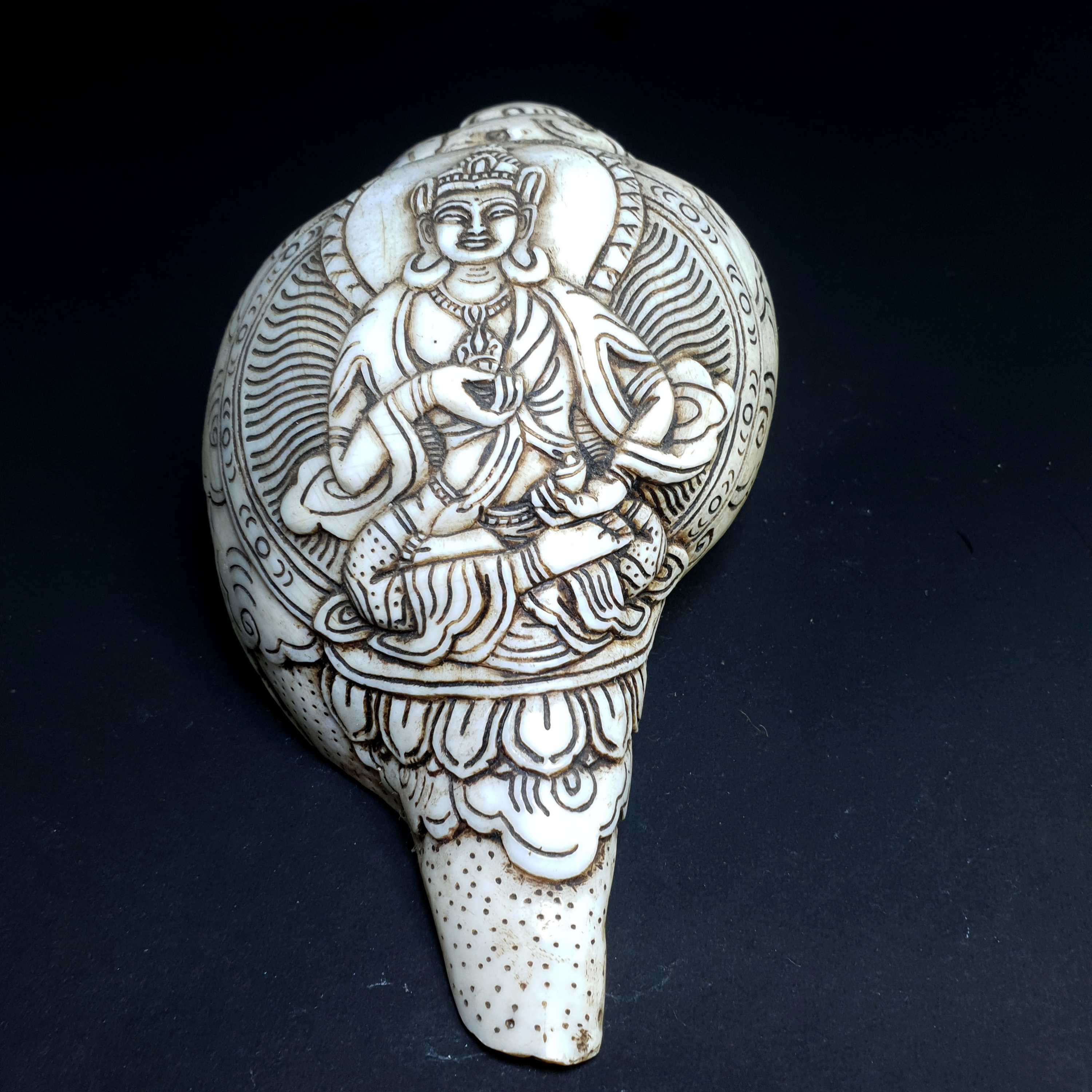
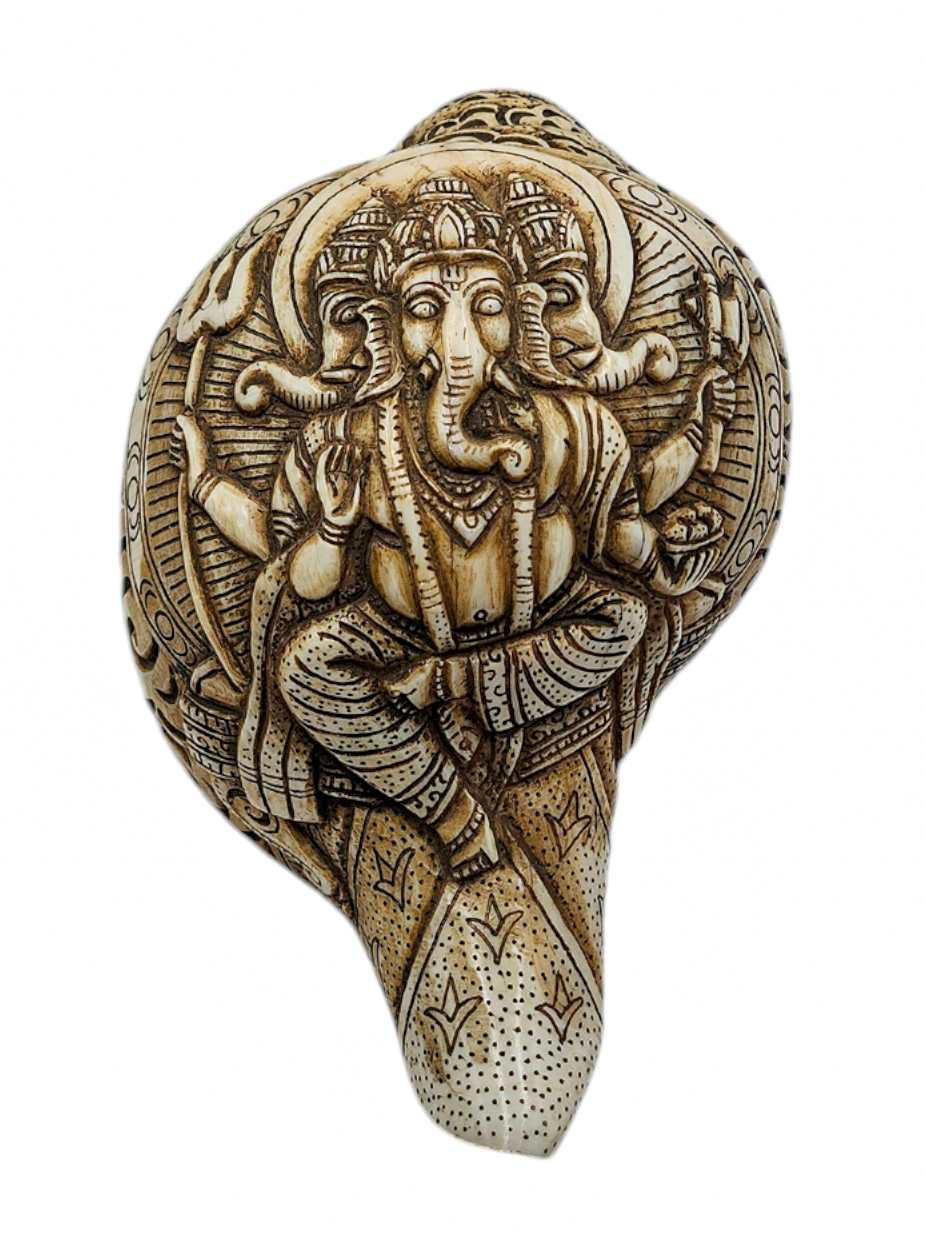 with
with 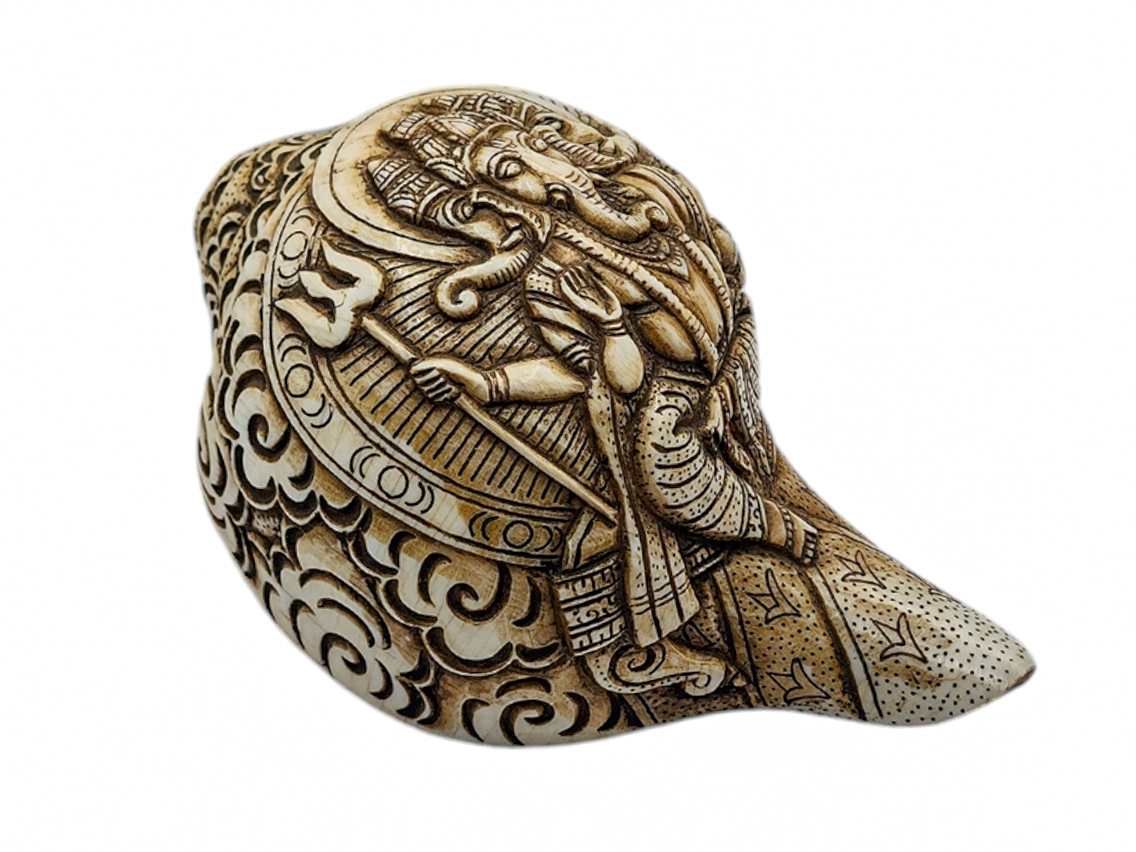 with
with 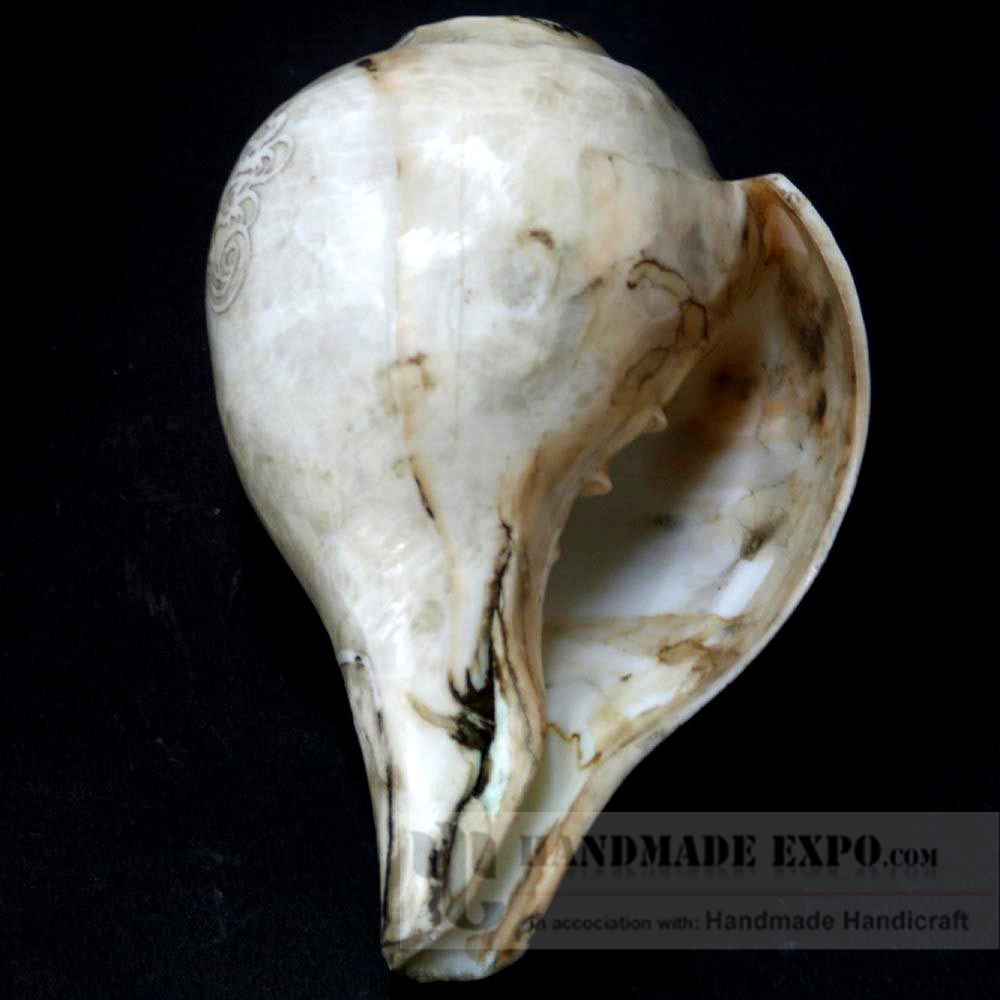 with Itching Process" title="Ashtamangala Conch Shell
with Itching Process" title="Ashtamangala Conch Shell 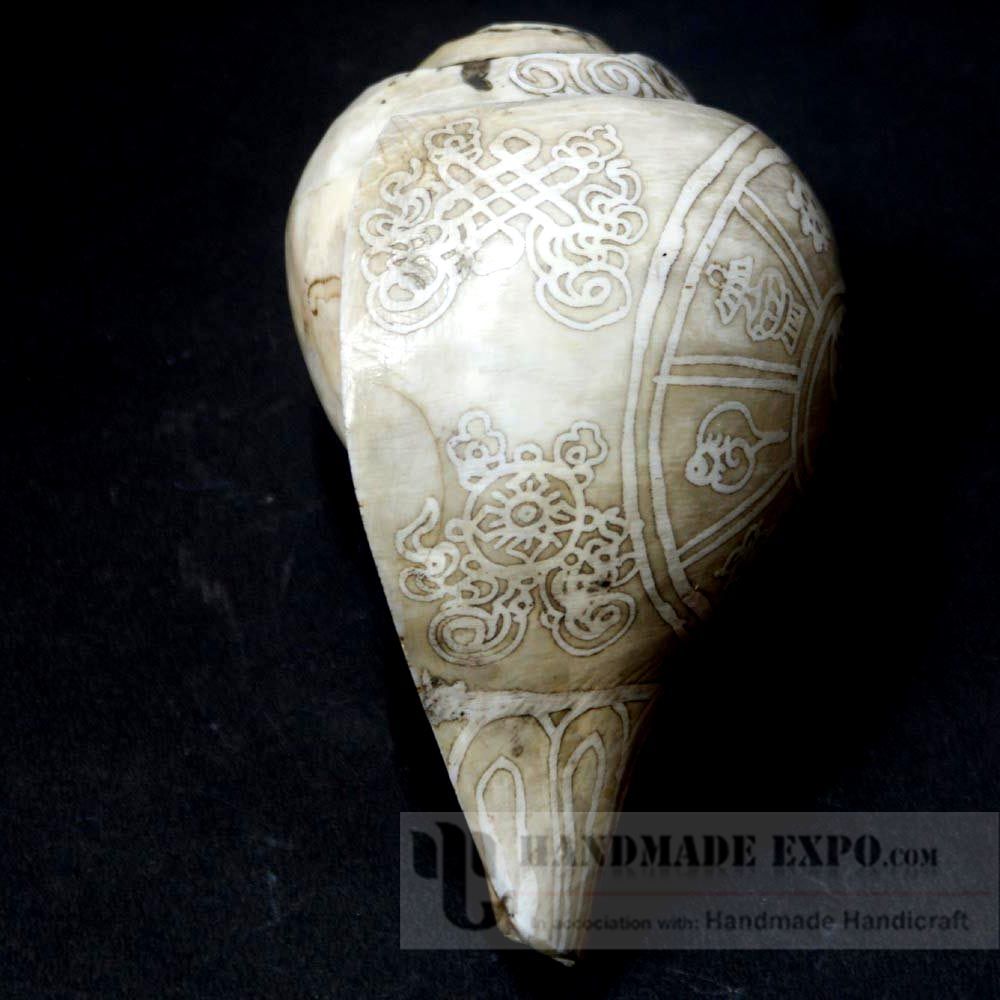 with Itching Process" title="Ashtamangala Conch Shell
with Itching Process" title="Ashtamangala Conch Shell 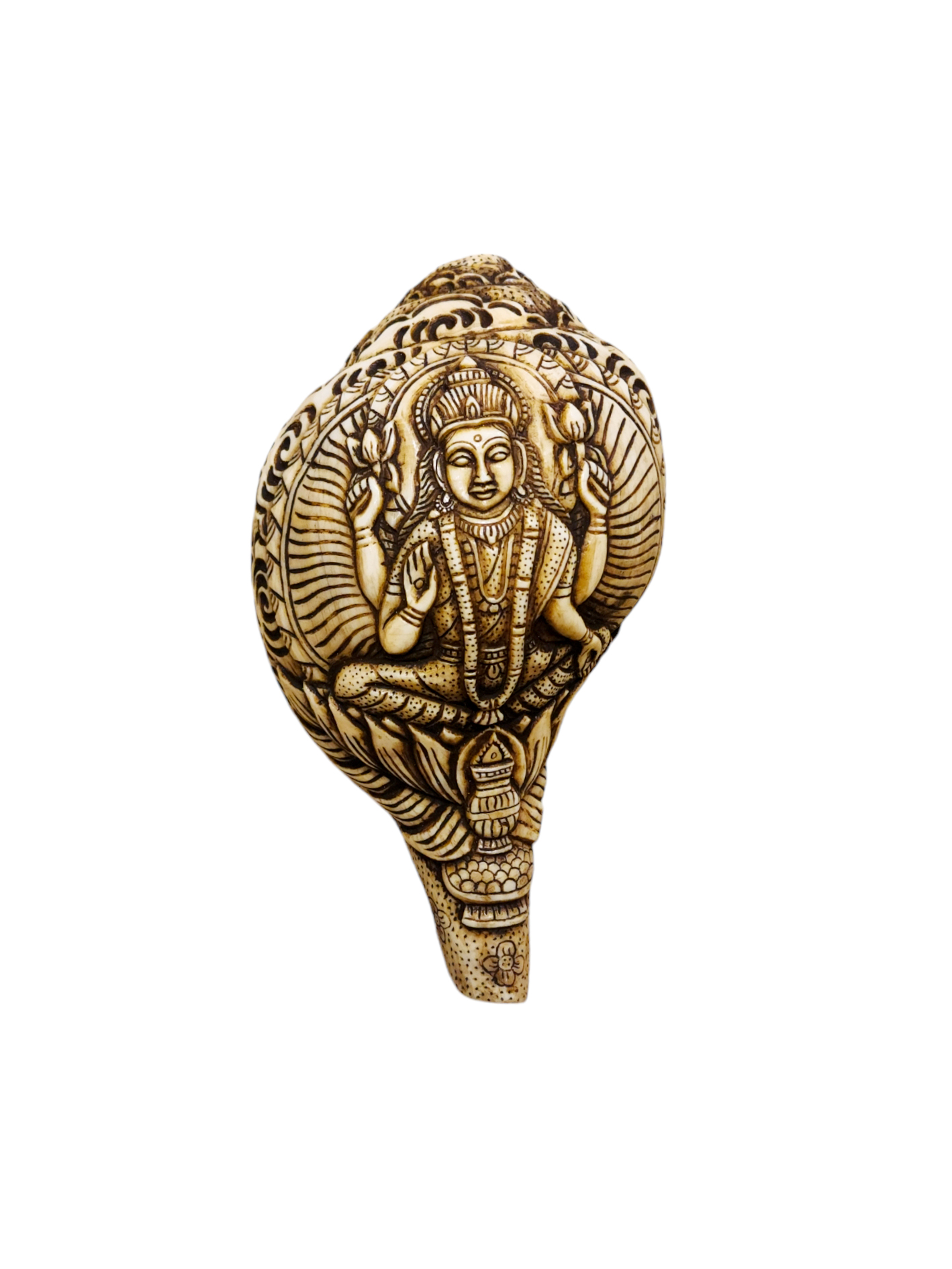 with
with 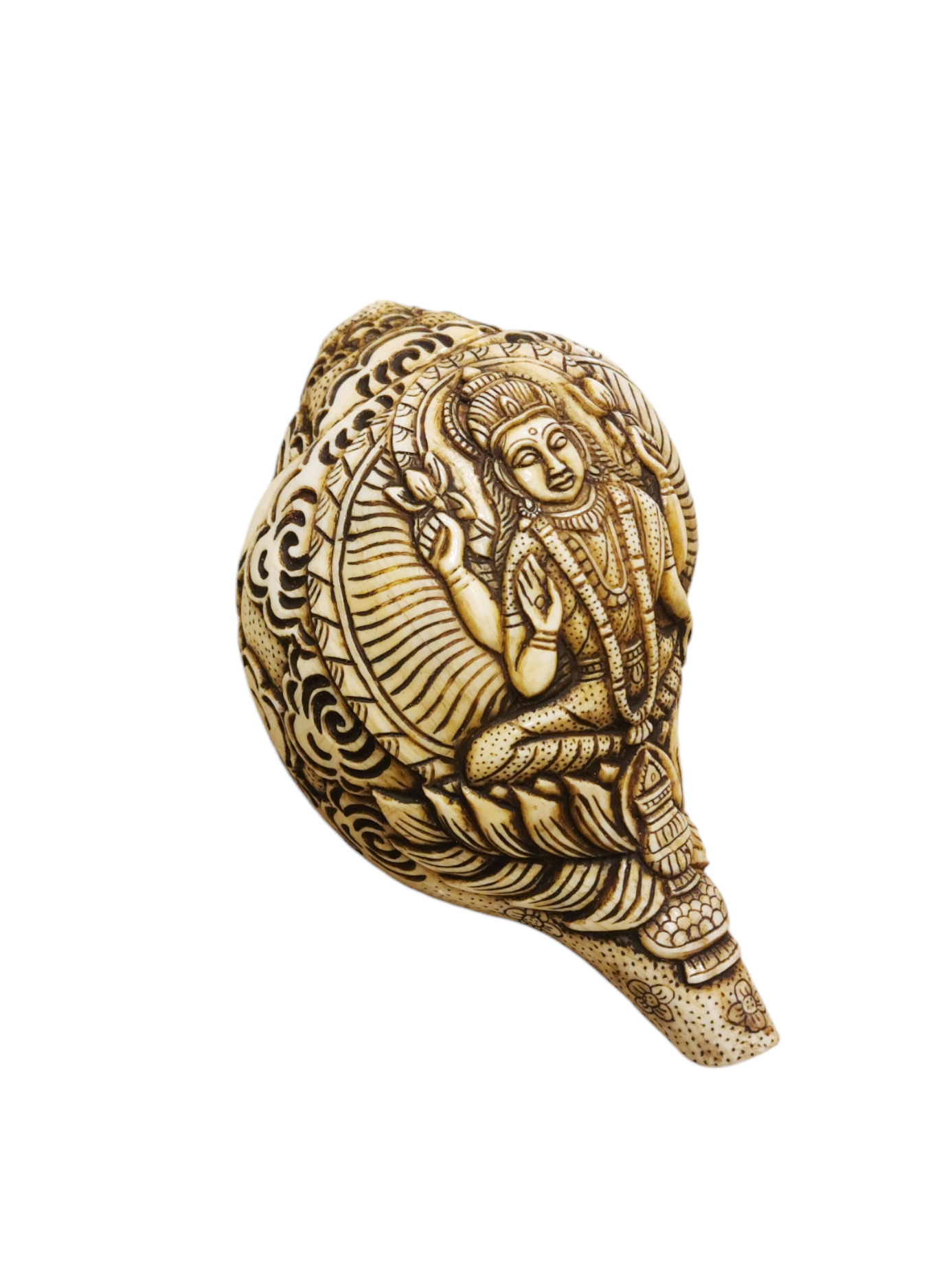 with
with 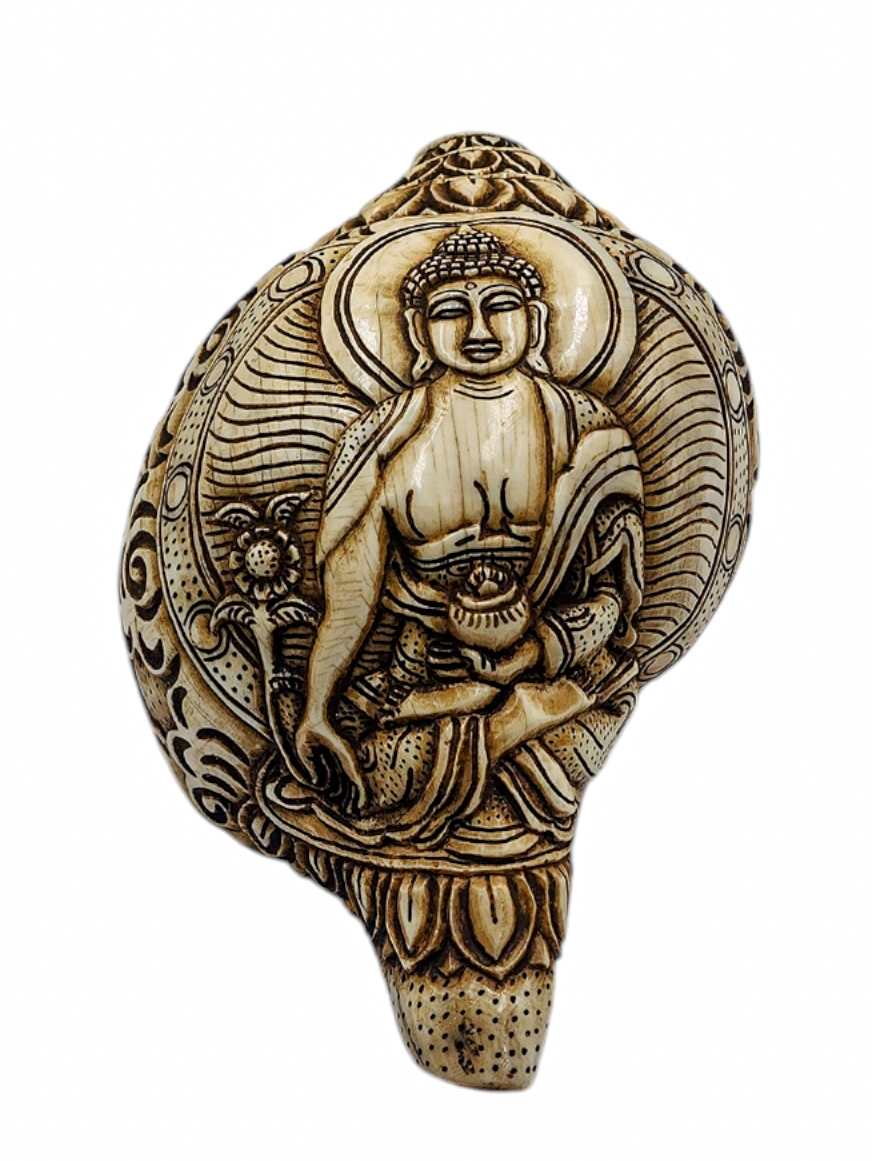 with
with 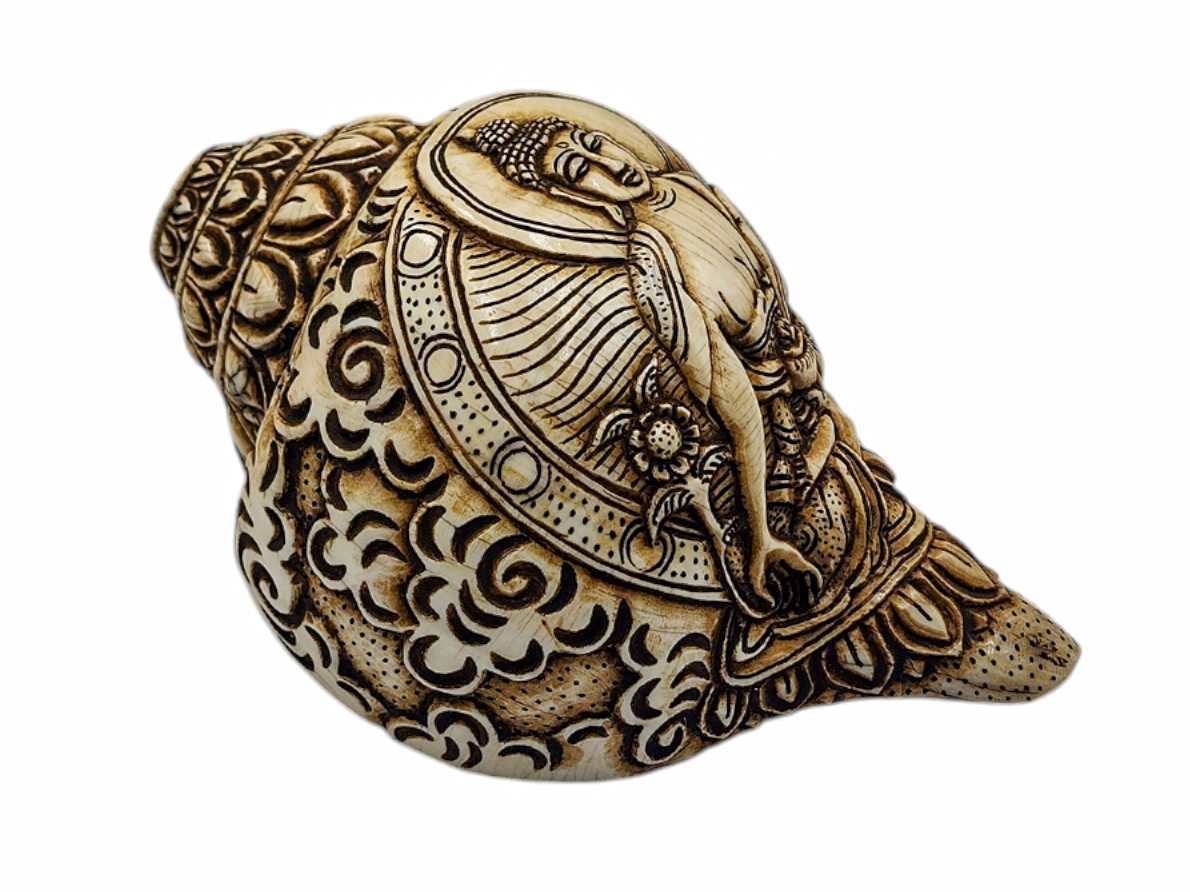 with
with  with Chenrezig
with Chenrezig 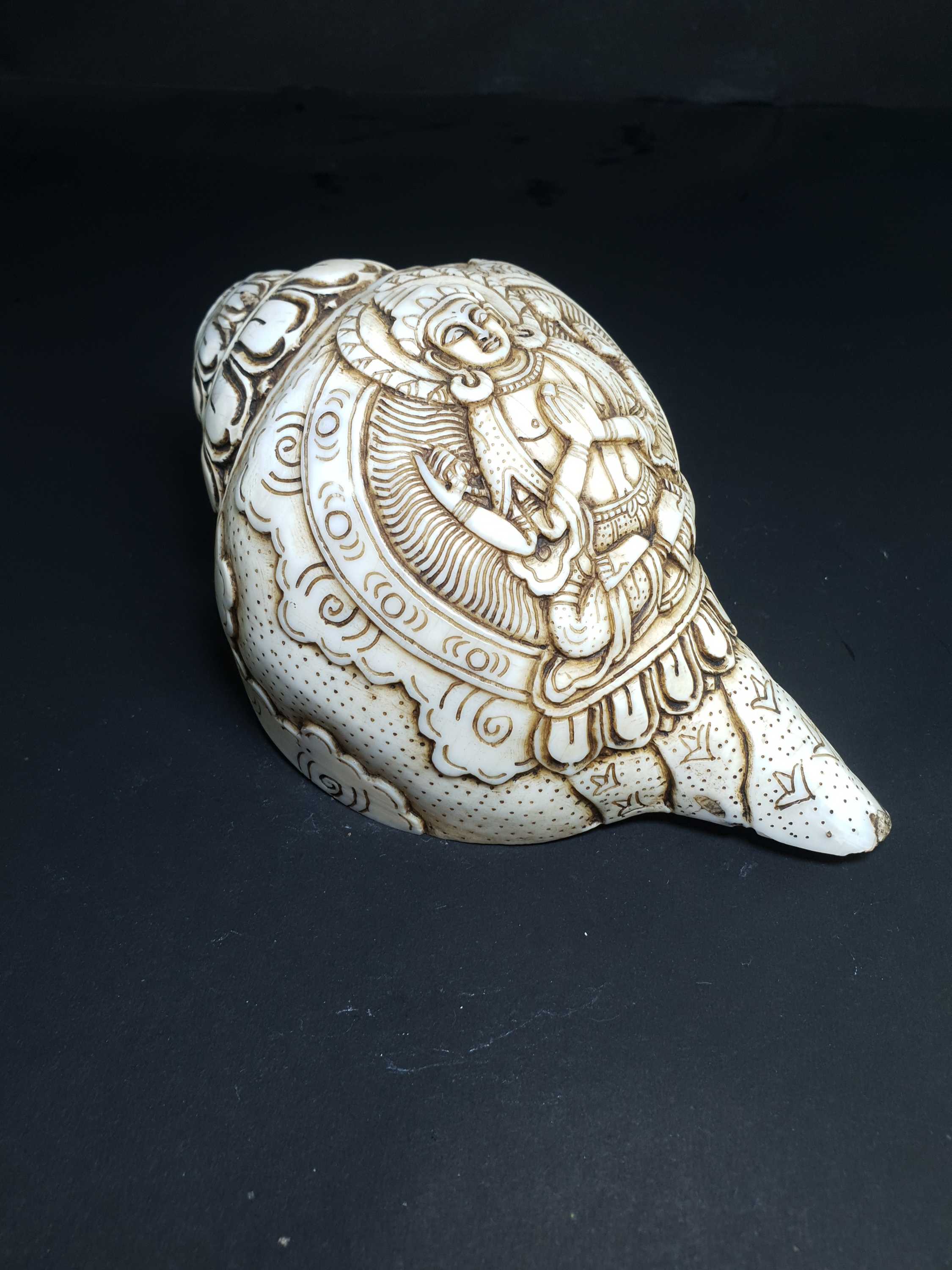 with Chenrezig
with Chenrezig 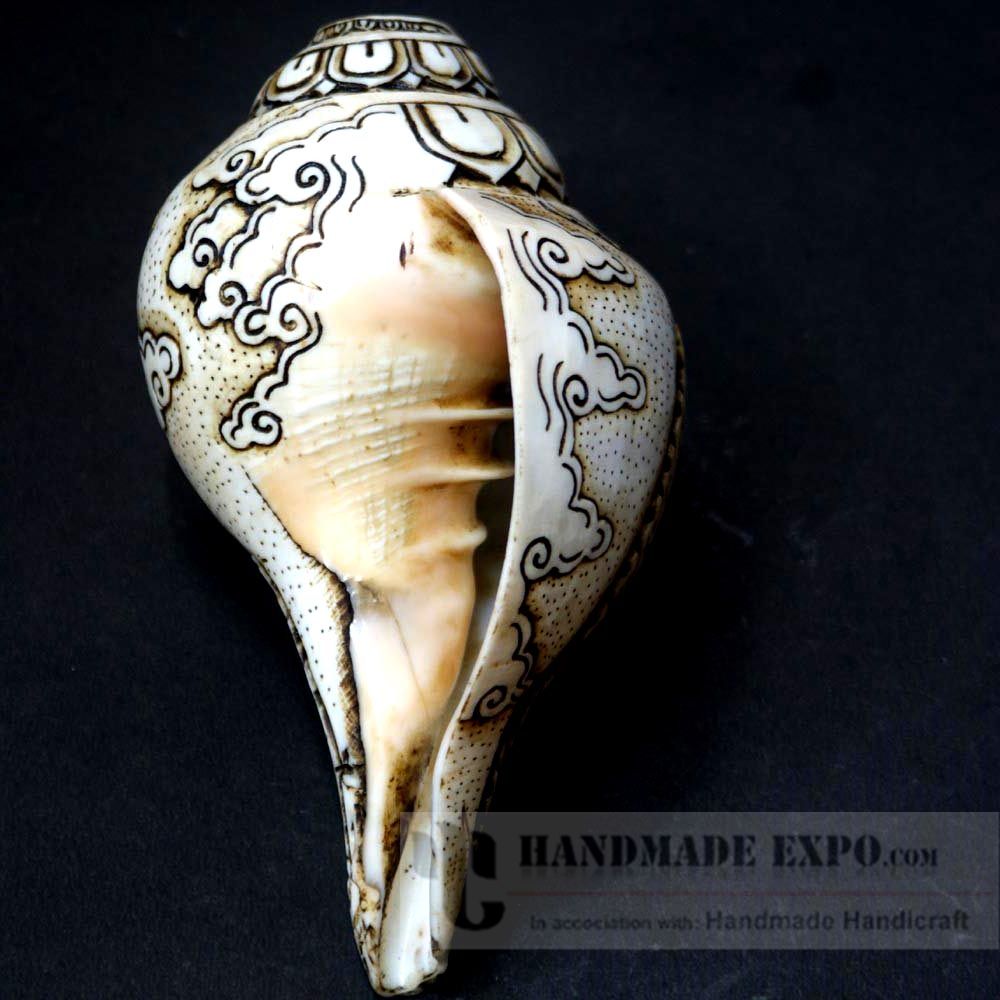
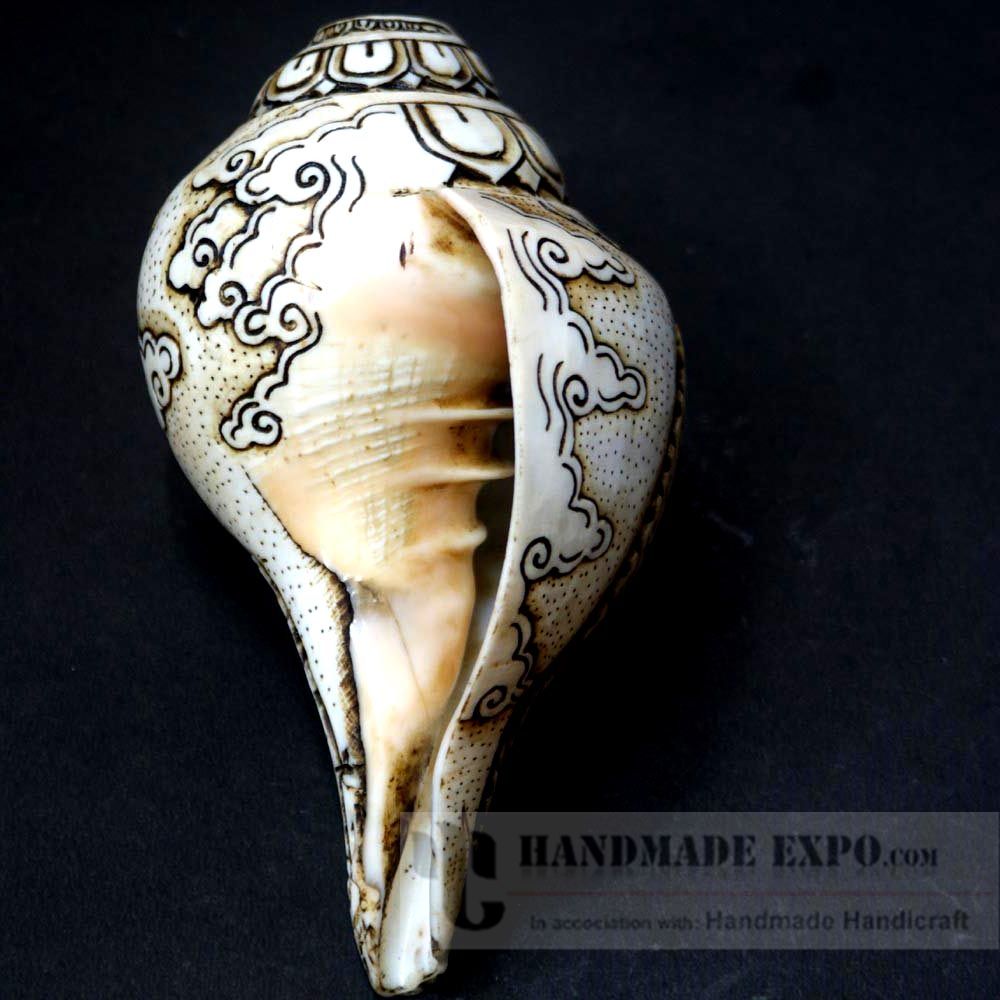
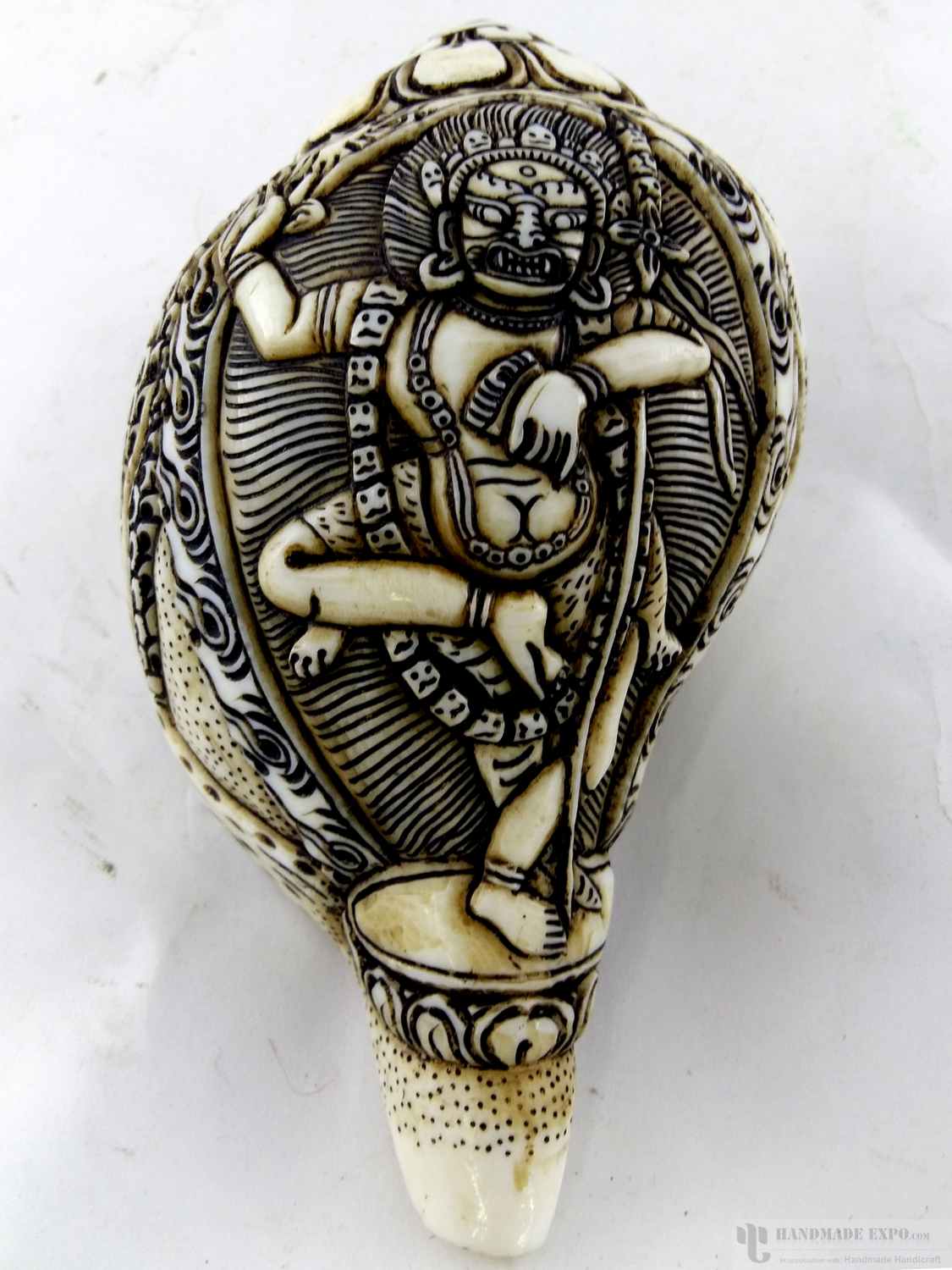 Hand Carved, Conch Shell" title="Vajravarahi - Dorje Phagmo Yogini
Hand Carved, Conch Shell" title="Vajravarahi - Dorje Phagmo Yogini 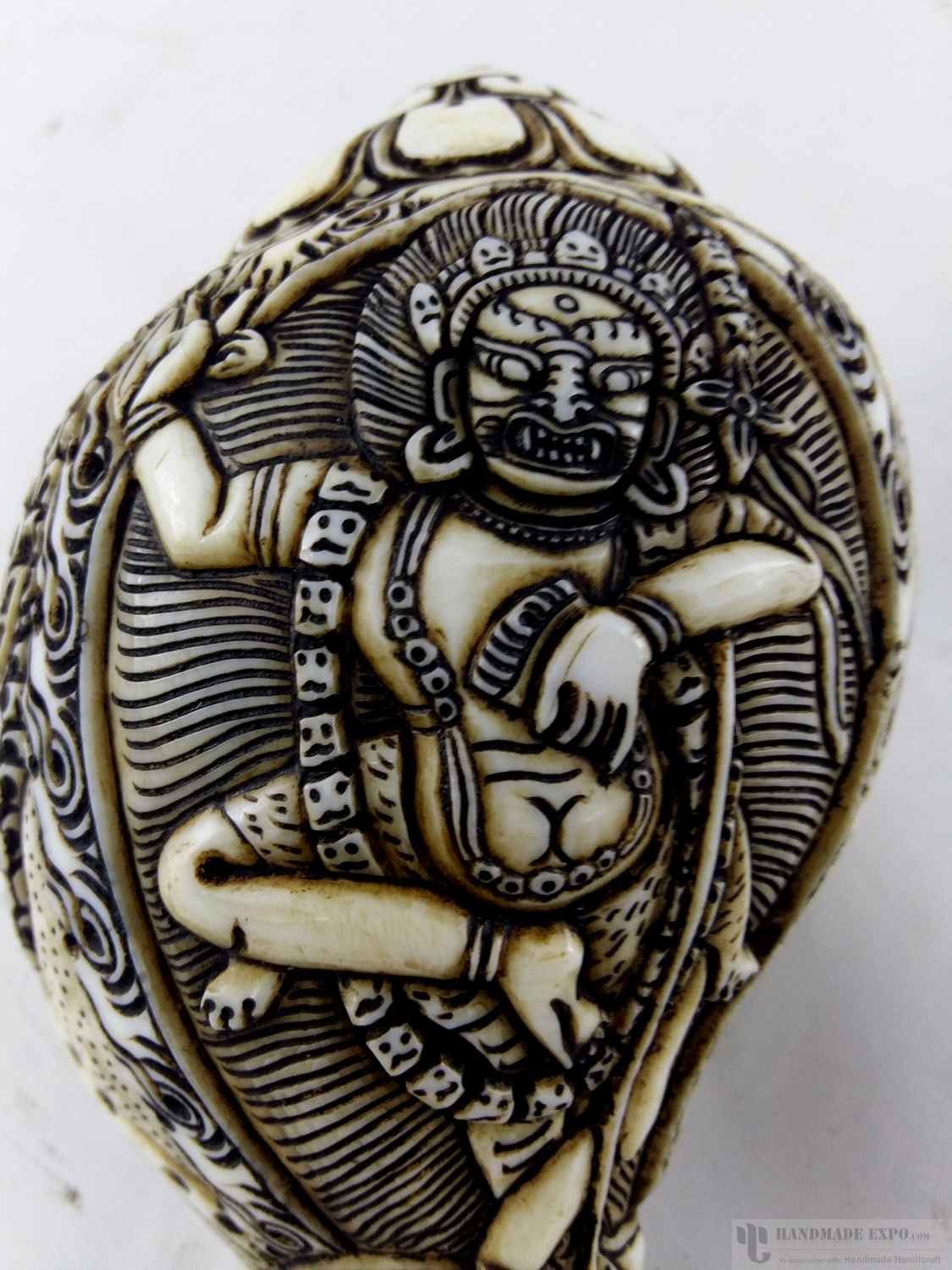 Hand Carved, Conch Shell" title="Vajravarahi - Dorje Phagmo Yogini
Hand Carved, Conch Shell" title="Vajravarahi - Dorje Phagmo Yogini 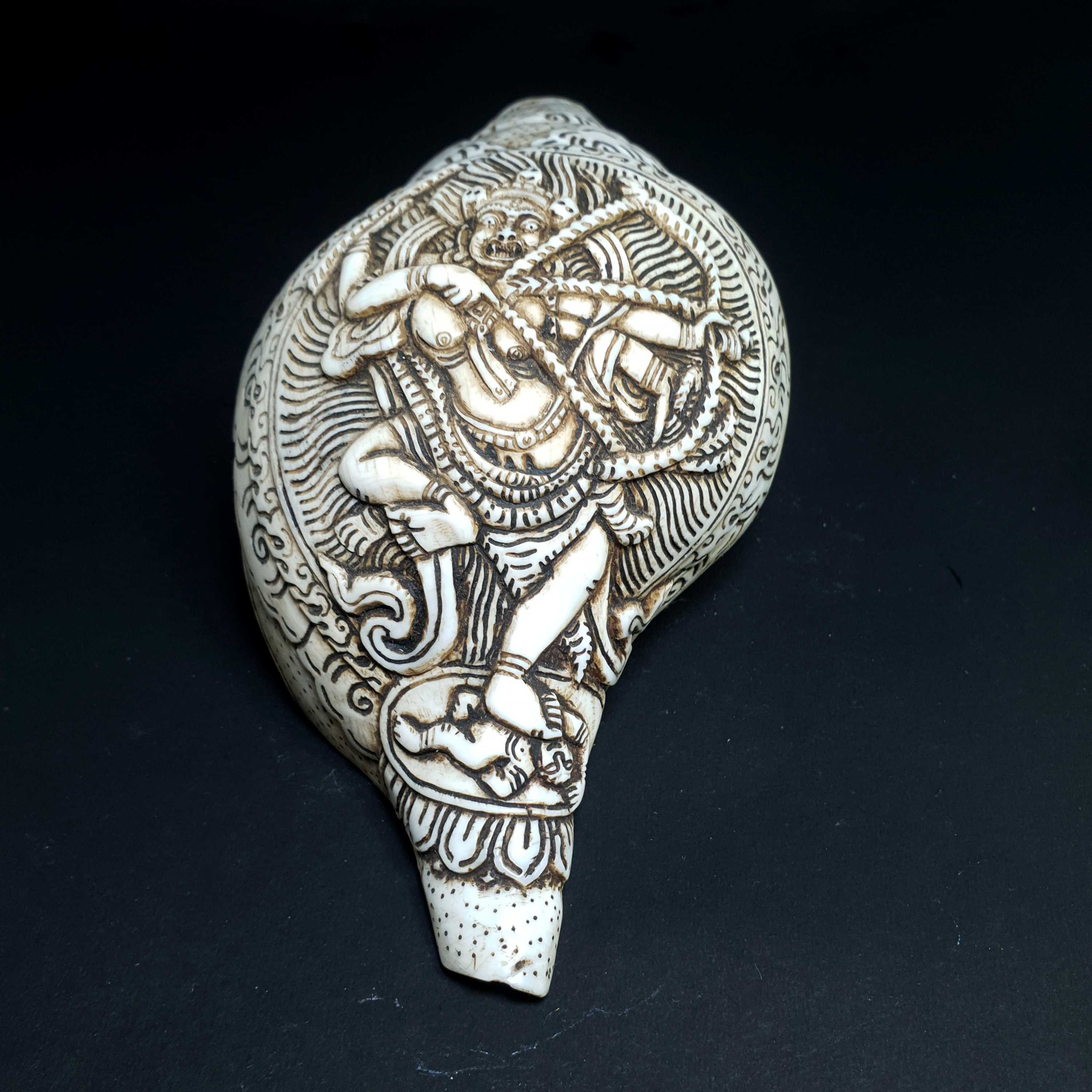 with Kurukulla
with Kurukulla 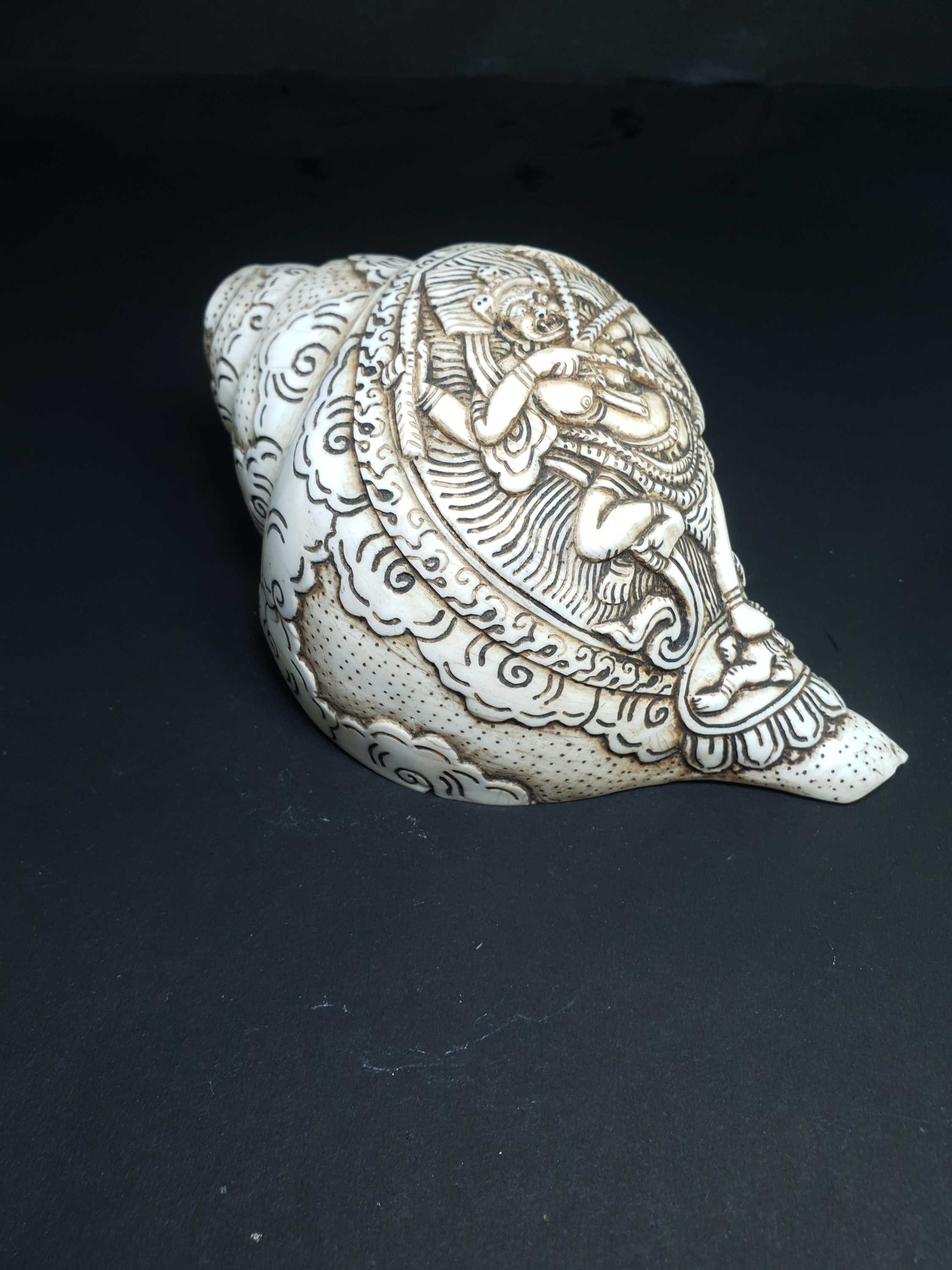 with Kurukulla
with Kurukulla 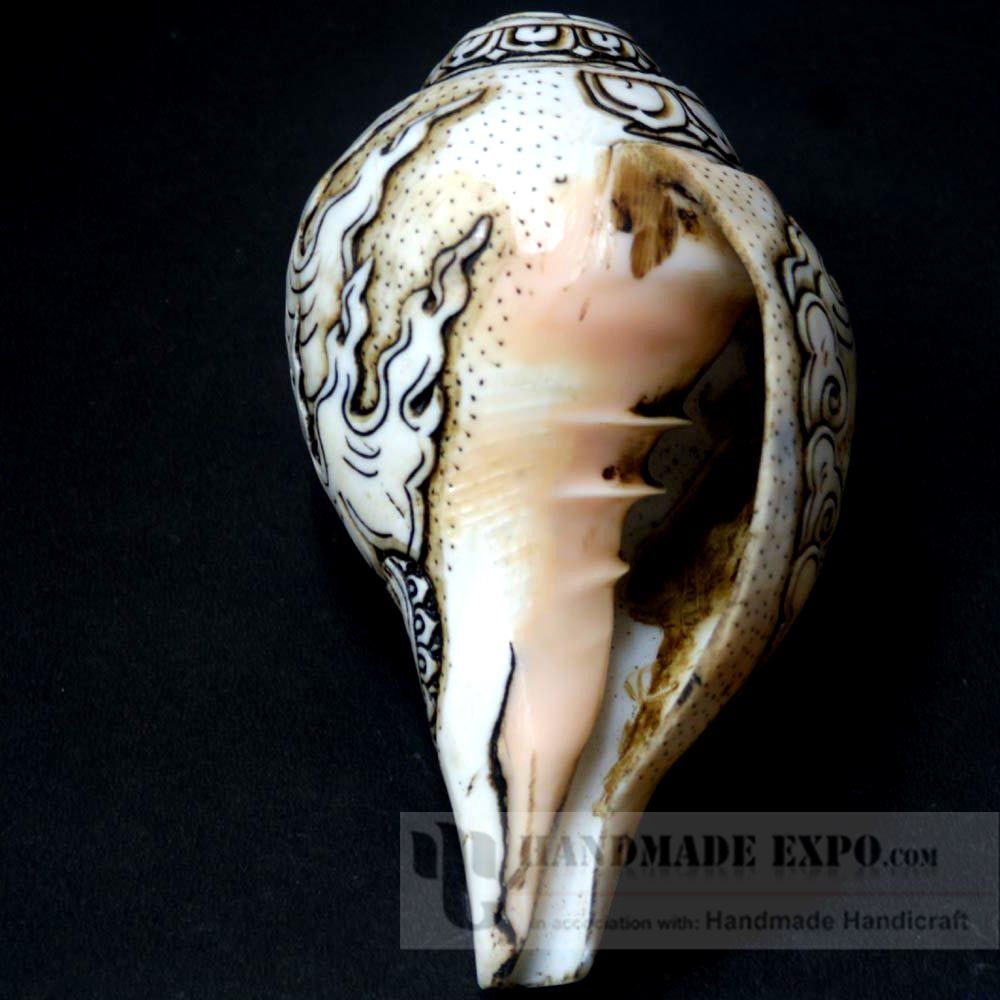
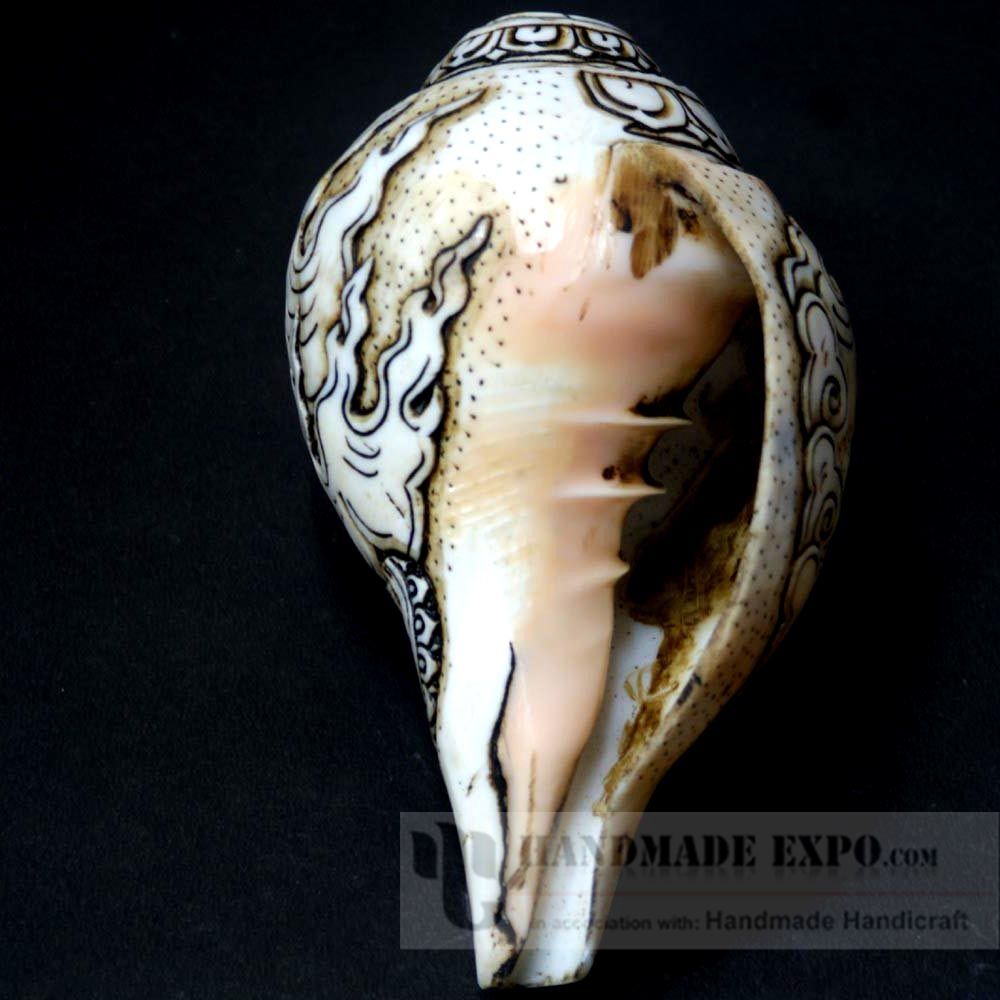
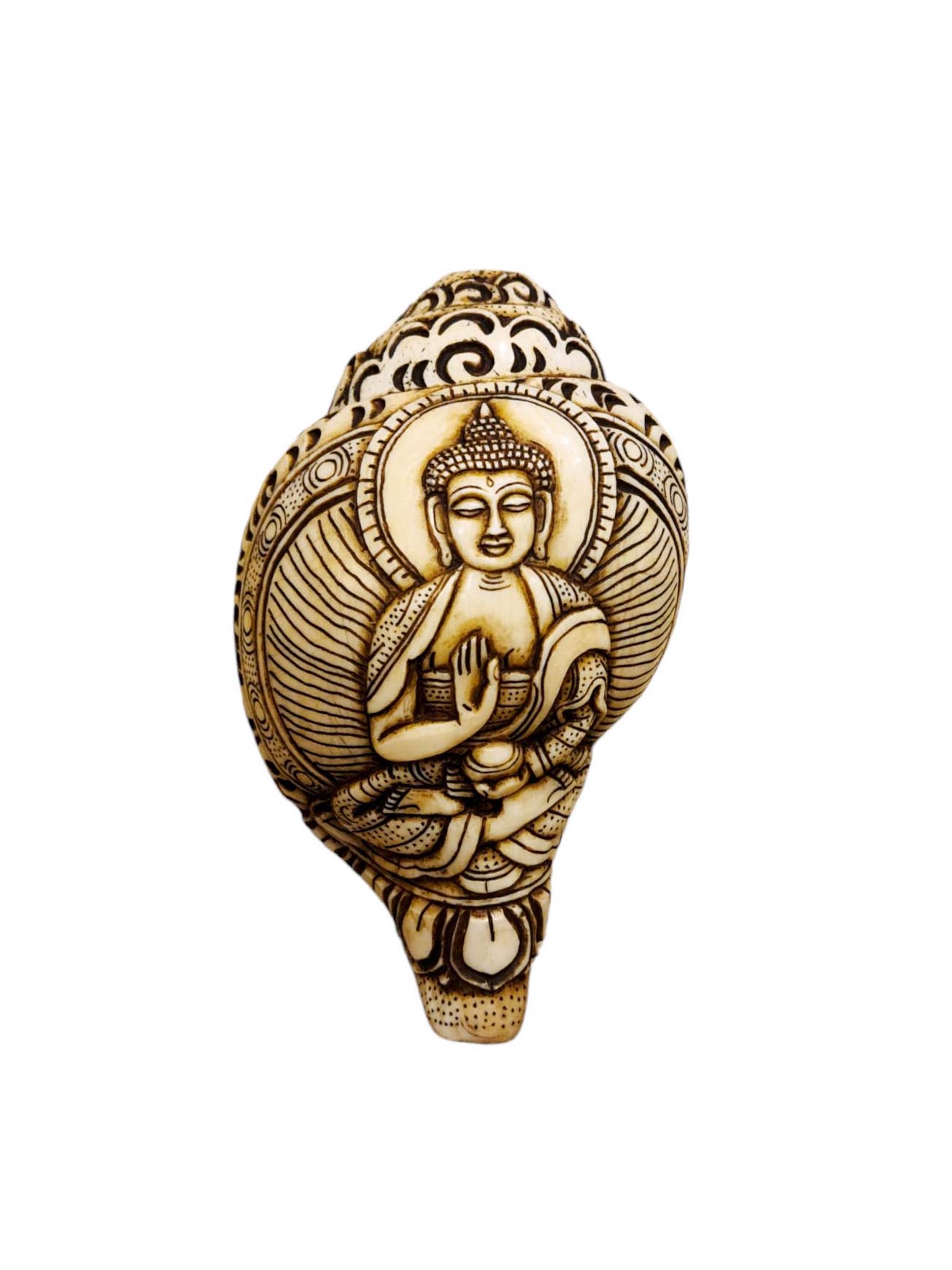 with
with 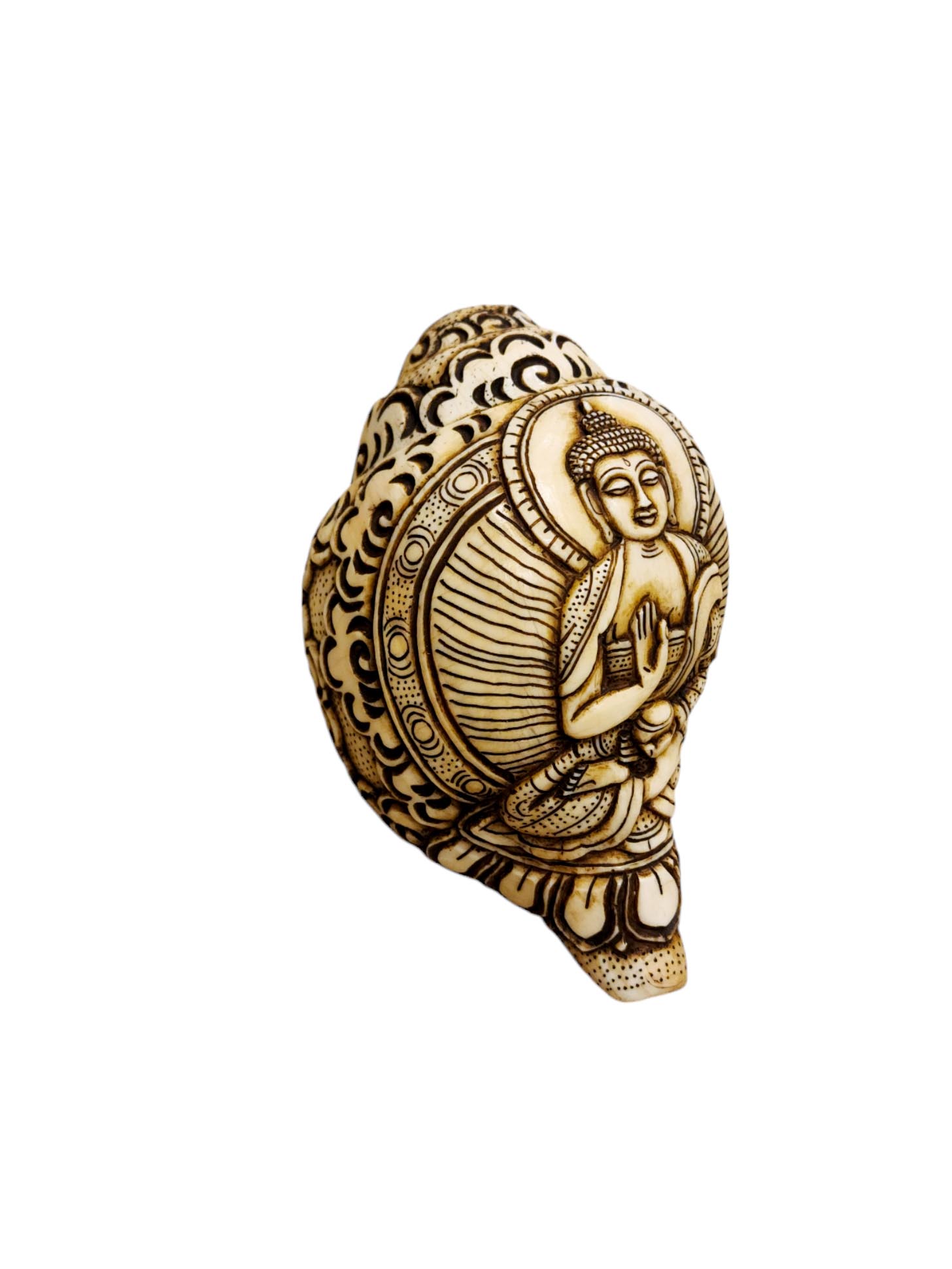 with
with